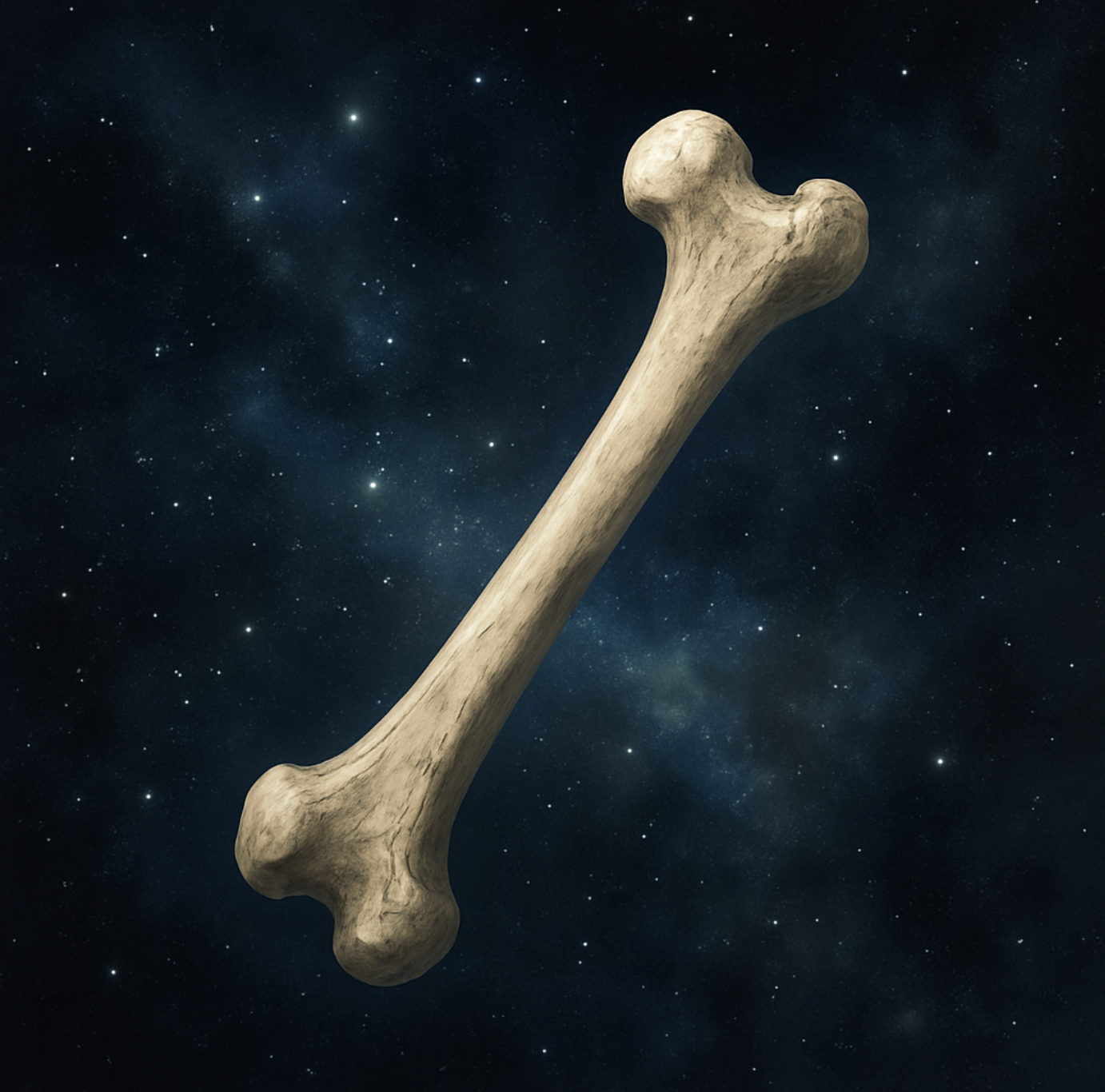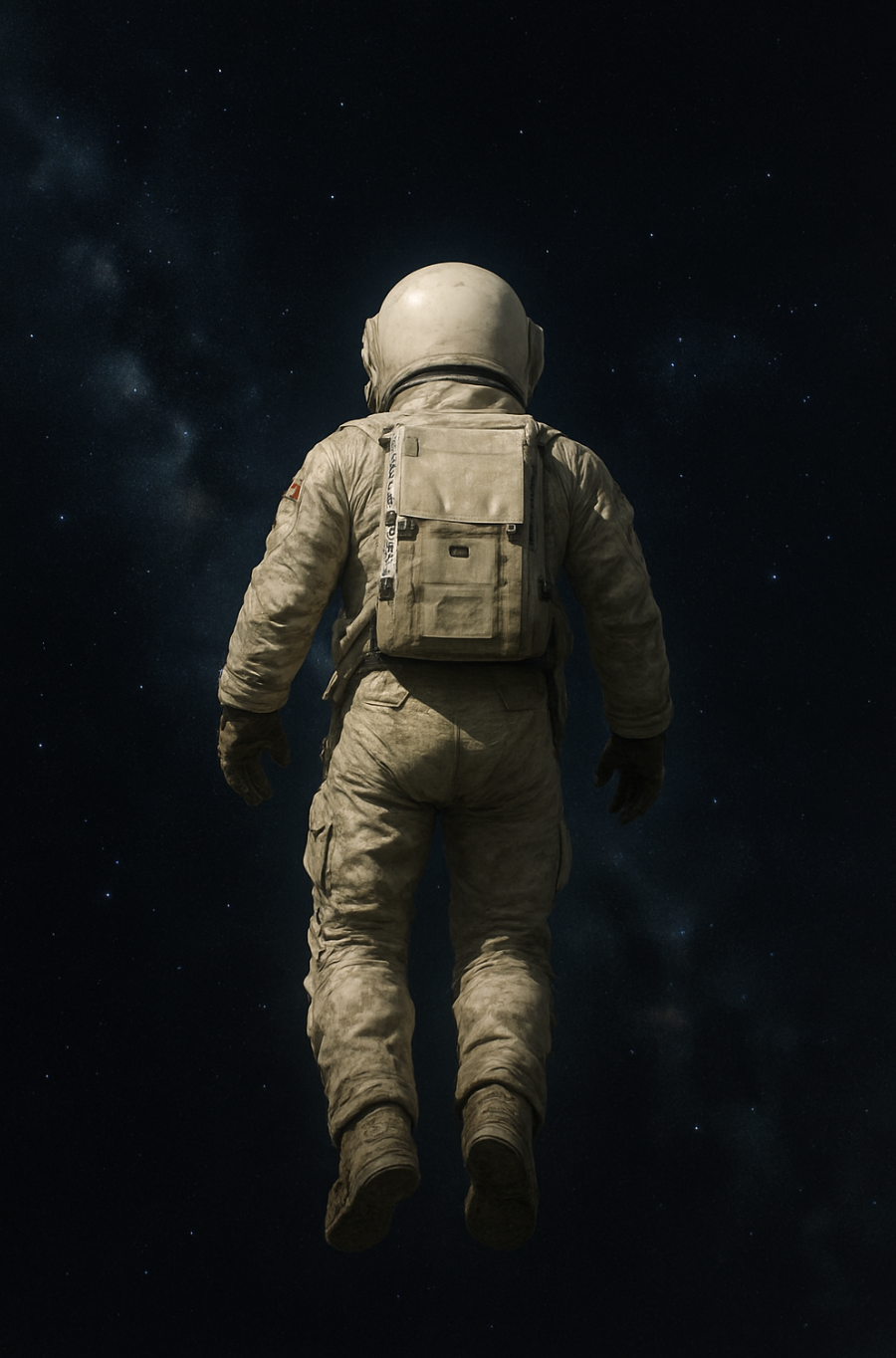What Happens to Your Body in Zero Gravity?
Here’s the truth no one tells you when they glamorize space travel: your body misses Earth.
I’m not talking about the views or the green everywhere, although, I would definitely mentally miss that. I’m not even talking about the sound of birds chirping and settling down of our nervous system.
It turns out your cells miss gravity and your bones miss weight. I never thought about it before I stumbled upon a reel on Instagram, but your blood misses the pull that told it where to flow.
In zero gravity, our bodies becomes untethered…and not just from the floor, but from itself.
As Elon Musk races to Mars and the world chases new highs, I was left wondering what really would happen to us in space.
Bones
In case you never thought about it before, gravity is what keeps our bones dense.
Each and every time we walk, jump, or stand, tiny stress signals stimulate bone growth.
Remove that force, and the body gets lazy.
In microgravity astronauts have been documented to lose 1% to 2% of bone mass per month. Hips, spine, and femurs are hit hardest, and after six months, bones can resemble early osteoporosis. Recovery takes years…and sometimes never fully completes.
Your skeleton was designed to resist Earth and without that daily challenge, it starts to dissolve into space.
Muscles: Use It or Lose It (Faster Than You Think)
Floating looks relaxing, especially if you’re thinking about doing it in a pool or a hot tub (today is pretty rainy and cold outside so I’m wishing I had a giant house with an indoor hot tub to float around in), but it’s weirdly deceptive.
Without resistance, your muscles weaken rapidly, which is my husband’s true worst nightmare.
Calves shrink while quads soften and even the heart muscle reduces in size.
To combat this, astronauts must exercise 2+ hours every day using resistance bands, cycle machines, and special treadmills with straps that simulate weight.
Because if they don’t they literally won’t be able to stand up when they land.
Blood, Fluids & the “Moon Face”
On Earth, gravity pulls fluids toward your feet, but in space, there’s no such drain.
So all your body’s water…floats upward. Faces puff up (“moon face”), your legs thin out, sinuses clog, and eyes flatten (causing space-induced vision problems).
The heart thinks the body has too much blood, so it reduces volume.
That’s why many astronauts feel faint upon return, their cardiovascular systems forget what it’s like to stand.
Both horrifying and deeply interesting how our bodies adjust as quickly as they do.
The Brain’s Balancing Act
Your vestibular system (I had no idea what this was, but Google tells me it’s the part that handles balance and spatial orientation!) relies on gravity to tell what’s up or down.
In space you get dizzy, nauseous, and disoriented. As someone whose family has long history of vertigo (I’ve suffered from this more times than I’d like to admit), this sounds like hell. Your eyes could start twitching as something called “space motion sickness” affects over 60% of astronauts.
Eventually, the brain recalibrates, but returning to Earth feels like being born all over again, on a spinning ride.
With 16 sunrises and sunsets a day on the ISS, astronauts lose track of time, and who could blame them?
Melatonin cycles collapse and dreams become fragmented while their sleep becomes irregular.
Floating also changes how you lie…no side, no stomach, no pillow stuffed in between your knees to get nice and cozy (highly recommend). In space, you just drift, and something in the body aches for pressure.
Psychological Side Effects of Weightlessness
Zero gravity isn’t just physical, it’s deeply emotional. I’d imagine you’d feel untethered from your body and disconnected from time as you completely lose your sense of place.
Many astronauts report dissociation, mood swings, homesickness, and even some unexpected euphoria that bubbles up for no reason.
Some call it the "overview effect"…a sudden, crushing awe of Earth’s beauty and fragility.
Related Reads You’ll Love:
Glowing Plants Are Real, And They Might One Day Light Our Cities
The New Garden Revolution: Growing with Companion Microbes Instead of Chemicals
This New Material Pulls Drinking Water Straight Out of Thin Air
The Secret Life of Soil: Why Healthy Dirt Might Be Smarter Than You Think
What Keeps You Grounded When Gravity Goes?
Astronauts often work on keeping a consistent “Earth” sleep schedule and listen to Earth sounds…waves, birds, wind. I do the same thing honestly when I’m having PTSD moments that shake my mind.
Journaling about dreams, dizziness, and drifting is apparently not only for trauma patients, but also astronauts.
Touching the floor (with feet straps) to simulate weight is another technique they rely on, because while the body floats, our souls still crave grounding.
Leg Recovery System
Originally developed for circulation and recovery, this tech mimics the pressure astronauts lose in space. Great for fatigue, soreness, or blood flow…especially if you spend long hours sedentary. Like a gravity hug for your calves.
Gravity is love from out planet in a strange way, and maybe that’s why it hurts so much to lose it.
Gravity isn’t just a force, it’s a relationship. It tells your cells where to be and your bones what to build. Your water knows where to flow because of it, and when we leave it behind, even in the name of progress, our bodies grieve.
A cycle of adaptation and aching is etched in our bones and stitched into our blood every time we leave the planet that made us.
The Body, Redefined by Flight
So your body in zero gravity shrinks and swells and forgets what it means to “stand”, but yet…it learns.
Because the body is nothing if not adaptable
We’re evolution’s living experiment…willing to float into dark skies if it means finding something new, our adventurous hearts finding a way to beat no matter the oddness of our environments.
When we do, let’s not forget that floating is not really freedom, it’s more like fragility made bearable by ingenuity.
And by the quiet wish to one day feel the ground again.

